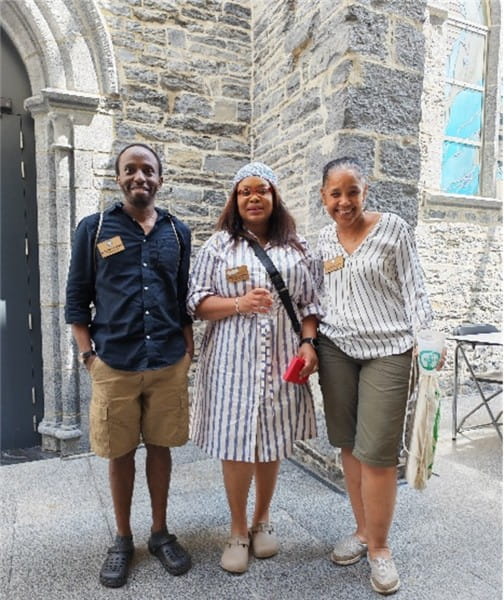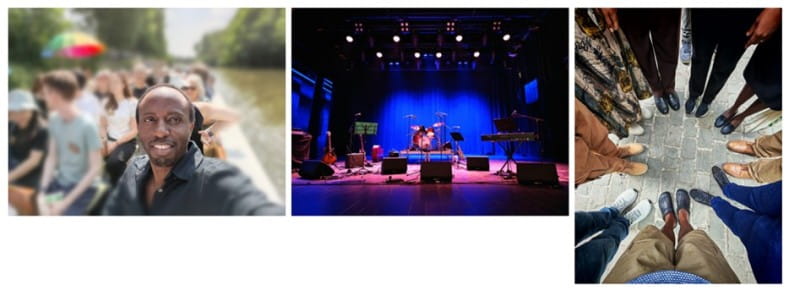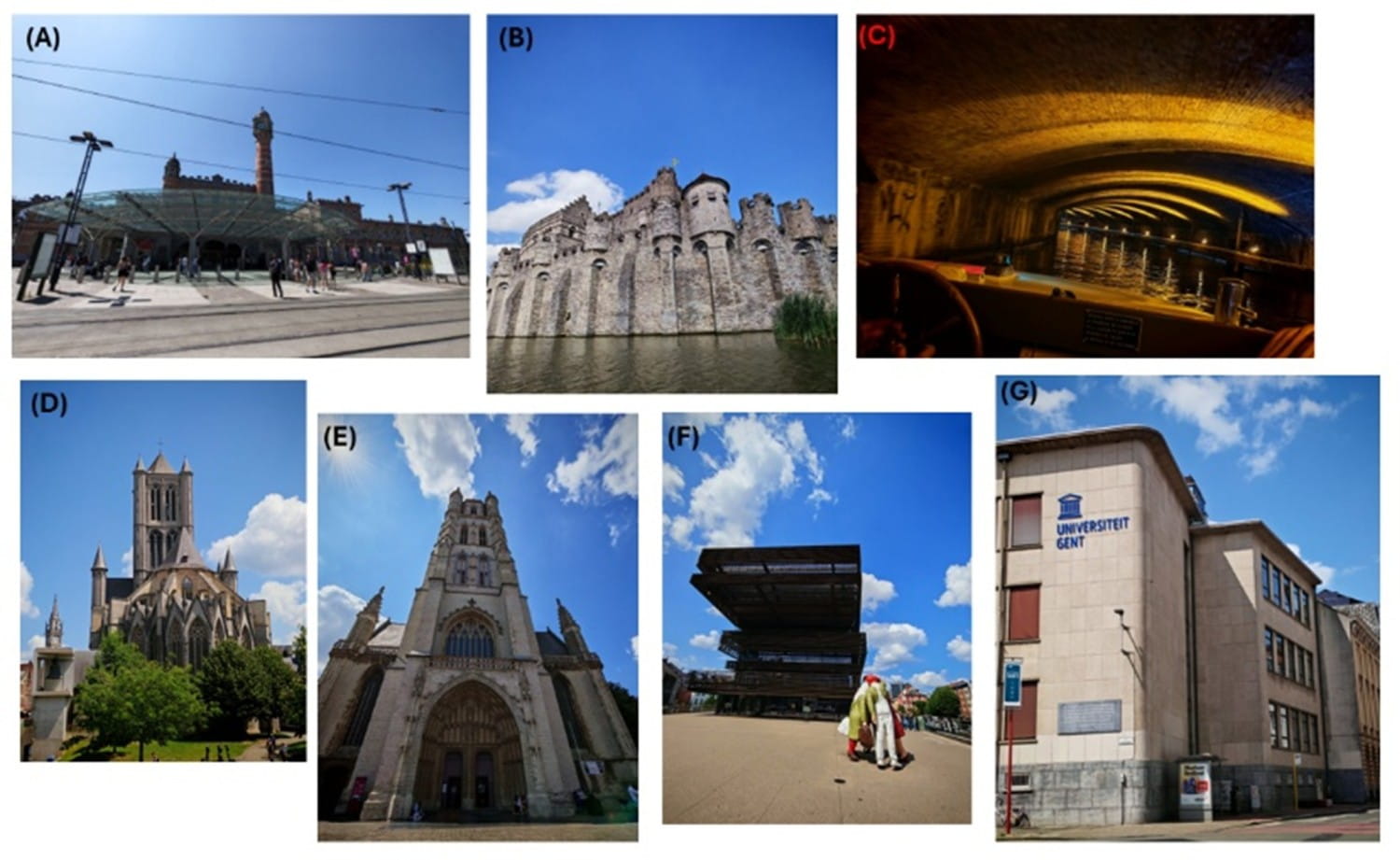My First International Conference on Arabidopsis Research (ICAR) – Ghent 2025

'Attending ICAR2025 in Ghent, Belgium reaffirmed how important scientific meetings are in my academic and research journey. Far beyond showcasing research, the conference inspired ideas exchange, networking and collaborations, and time to reflect on professional growth - across both broad and niche themes. Surrounded by peers at every career stage, I left with fresh insights into emerging discoveries and research direction, and a renewed sense of connection to a thriving research community'.
I am Dr Crispus M. Mbaluto, Senior Research Officer at the Pallavi Singh Lab, School of Life Sciences, University of Essex UK. My research focuses on molecular mechanisms underlying interactions of plants with their biotic and abiotic environments. I am one of the two recipients of the 2025 Black in Plant Sciences (BiPS) UK Research Excellence Award, alongside Dr Charlene K. Dambire (University of Nottingham UK). This award enabled me to attend the International Conference on Arabidopsis Research (ICAR) in Ghent – my first time at the globally recognised meeting. In this blog, I reflect on what the experience meant to me.
Walking into ICAR2025
From 16-20 June 2025, I had the opportunity to attend ICAR held at the Bijloke Gent Music Centre in Ghent, Belgium, generously supported by BiPS UK. ICAR is an annual meeting that brings together researchers who use Arabidopsis thaliana as their model system - an indispensable plant species that has helped unlock countless mysteries in plant biology. Though my research does not directly focus on Arabidopsis, the experience proved both enriching and inspiring.
I will admit, I was a bit apprehensive at first. My research is not centred around Arabidopsis, and based on past conference experiences I expected that many attendees would already be part of tightly connected research groups or collaborations. I felt like a bit of a “lone ranger.” But that hesitation began to fade the moment I arrived on Day One.
The first stop was the registration desk to collect a welcome pack (pen, program, badge and notebook) and the energy at the registration desk was electric. The meeting opened with warm welcome remarks and smoothly transitioned into an engaging line-up of Opening Keynotes Talks and afterwards a lively reception -food and drinks.
It was at the reception, where I met Charlene (the other BiPS awardee) and Professor Yoselin Benitez-Alfonso, the BiPS UK co-founder and group leader at the University of Leeds UK (Image 1). Though we had connected virtually, it was our first in-person meeting. Yoselin’s positivity is contagious and was excited to see us, and quickly took lead to introduce me to her network, and even facilitated introduction to PIs and group leaders, I had hope to meet for one-to-one chat.

What followed next, was four days of enrichment: The conference agenda was well-structured. Morning plenary sessions (each with three talks), followed by concurrent thematic sessions and workshops in the afternoon, and poster session to close the day. What surprised me was how much I enjoyed the sessions, even those slightly outside my direct research interests. To highlight a few, I enjoyed the sessions on ‘plants and their abiotic environment’, ‘signal transduction’, ‘plant development’, ‘biotic interactions’ and ‘translational research’, that opened new windows of thoughts and perspectives.
Another memorable highlight: thanks to Yoselin’s invitation to the NAASC catch-up meeting. I spoke with Professor Sheng Yang He (Duke University, USA) and later was introduced to Professor Julia Bailey-Serres (University of California-Riverside, USA). These were far from casual meet-and-greet, I had meaningful scientific conversations, asked questions I had noted during the talks, explored future directions in crop research, and gained valuable insights into navigating an academic career across borders. I also connected with many peers and postgraduate students, where our conversations ranged from experimental design, data analyses to navigating academic life as international researchers. A key highlight was to meet four Kenyan students and two Ugandan researchers, who I enjoyed talking to and sharing tips on how to approach those they were interested to chat with. A big thanks to Charlene who also shared her experiences with them.
Alongside the science, ICAR2025 included many workshops such as ECR publication advice facilitated by journal editors among others. I highlight the workshop on Building a diverse and inclusive community through effective teaching and mentoring. The title alone sets a clear intention – but the discussion that unfolded offered tangible reflection and actions. The workshop included six speakers. Yoselin shared powerful overview of community-led action through BiPS UK. She laid bare the challenges faced by black plant scientists, among them isolation despite visibility, micro-and macro-aggression, underrepresentation on decision making panels and pervasive doubts around lived experiences. A significant proportion of UK population identifies as black (40% in London neighbourhoods), but only 0.6% of UK Professors are of black heritage, reflecting the urgent need for community, recognition and systemic change. BiPS UK network is addressing this head-on-by connecting, celebrating and cultivating black plant scientists across the UK. I was incredibly humbled to be given ‘a minute-of-fame’ during Yoselin’s session to share my experience as a BiPS UK award recipient.
Other speakers in the workshop included Agnes Uhereczky (VIB Ghent Belgium), who enlightened us on how linking diversity, inclusion and equity can create safe spaces. I learned that great science will happen if we can challenge the collective wisdom, and that diversity only leads to more innovation, if we have inclusion. Professor Mary Williams (ASPB, USA) who spoke on the impact of mentorship, particularly underscoring that effective mentorship is rooted in recognising the roles of social identity to shape professional journeys. Dr Andrea Paterlini (University of Edinburgh, Scotland) and Professor Sofie Goormachtig (Ghent University, Belgium) shared insights on teaching strategies that embrace inclusivity in classroom. Lastly, was Dr Devang Mehta (KU Leuven, Belgium) who offered personal take on reshaping research cultures, grounded in his own lived experienced and actions throughout his academic path.
The Lighter Side of Science: Boat Trip & Dinner Party

What’s a conference without a little fun? Day four brought some levity: a canal boat trip, though brief, it offered a glimpse into the city’s layered history (Image 2 -left). Later that evening came the dinner party—that doubled as crash course in networking and multitasking - plate of food in one hand, trying to read name badges for networking, exchanging elevator pitches, and occasionally managing a drink - it was a masterclass in networking finesse. The live band brought great energy, and I even had the chance to chat with them post-set—good vibes all around! (Image 2).
Discovering Ghent, Belgium

Although I have lived in Europe for a decade, Ghent had stayed off my map - until June 2025. I was truly excited to explore the city on the weekend before the ICAR meeting. Walking through Ghent felt like entering a living tapestry: medieval charm, intricately woven with modern energy. Its skyline, crowned by the three towers - St. Nicholas Church, the Belfry, and St. Bavo’s Cathedral - was nothing short of grand. As someone with an eye for academic heritage, visiting the Ghent University was a must. I learned that the university’s iconic main building is known as the Aula Academica, an architectural and intellectual gem (Image 3). This trip reinforced a valuable insight: attending conferences is not just about the ground-breaking research. It is also about discovery of new places, perspectives, and people and cultures. I even posted this realisation on my Bluesky account to encourage fellow researchers to embrace the joy of academic travel.
Key Takeaways from ICAR2025
Although I have attended large conferences before, ICAR offered something special- a focused theme coupled with an inclusive vibrant community. Despite not being a traditional Arabidopsis researcher, I found the discussions accessible and informative. I connected easily with peers, exchanged ideas, and gained perspective on how Arabidopsis knowledge is translated into broader crop research. I would like to highlight Professor Anna Stepanova (North Carolina State University, USA) who talked about Harnessing Ethylene: from Arabidopsis Promoters to Crop Application. Overall, the diverse mix of academics, industry exhibitions, and ECR’s created a refreshing and culturally rich environment.
Was ICAR2025 Worth It? Absolutely
Attending ICAR2025 was a worthwhile experience. I am grateful that my abstract was accepted as a poster, it allowed me to present my work, engage with others, and receive valuable feedback. I walked away with insights on novel research approaches and an appreciation for the power of Arabidopsis as a model system. I would strongly encourage ECRs, even those whose work does not directly involve Arabidopsis, to attend ICAR at least once. It’s a great way to stay current, build networks, and broaden one’s scientific worldview.
Gratitude and wrap up
I would like to thank the Black in Plant Science UK for awarding me the 2025 Black in Plant Science Research Excellence Award. The BiPS award has catalysed new opportunities, such as invitation to participate at ICAR, increased visibility via introduction to networks within plant sciences, invitation to talk at the Black in Plant Science Conference, invitation to attend symposiums and workshops, just to mention a few! I thank Dr Pallavi Singh for her mentorship. I acknowledge The Pallavi Singh Lab, where we are a strong team, the data I presented would not have been possible without you, you lot are great team! Lastly, the Plant Group at Essex, where I belong.
Follow my research on BlueSky (@crispus-mbaluto.bsky.social) and LinkedIn (@Crispus Mbaluto)